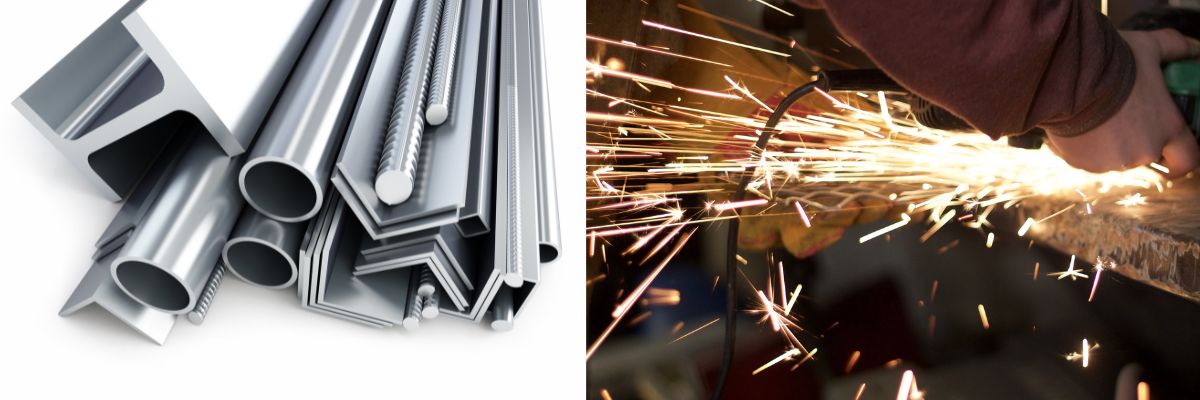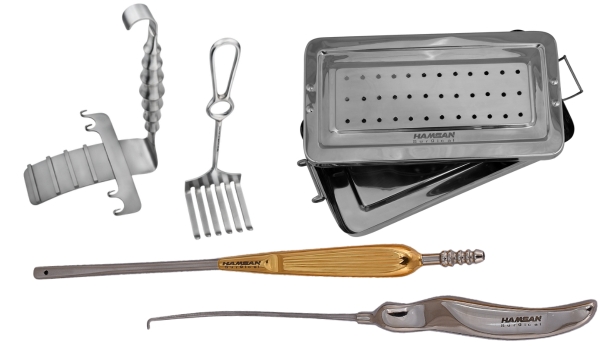


Knowing about the types of metals from which instruments are made is important for knowing which instruments
1- Are ideal for specific uses
2- Can be repaired or should be replaced.
Most surgical instruments are made from austenitic or martensitic stainless steel.
Tungsten carbide is an exceedingly strong, durable metal used to make the highest quality surgical instruments, which are recognizable by their gold-colored handles. Commonly used only on the inner jaws of needle holders or the cutting edge of scissors, tungsten carbide strengthens these surfaces and retains a sharp edge the other parts of these instruments are usually made of stainless steel. Being able to determine which instruments have tungsten carbide is important because they can usually be repaired rather than replaced. A proactive approach to instrument care and repair can save clinics money by avoiding or delaying instrument replacement.
Titanium alloy is perfect for biological and medical applications since it is 100% anti-magnetic, corrosion-resistant, lightweight, and robust. Titanium possesses the tensile strength of carbon steel and is impervious to nitric acid, chloride, saltwater, and industrial and organic chemicals corrosion.
This alloy is 40% lighter and more flexible than Inox. Titanium alloys change their dimensions less than half as much as stainless steel alloys when heated or cooled, making Titanium surgical equipment far more durable.
Titanium is a non-staining metal that can withstand temperatures of up to 430°C. For corrosive settings or MRI applications, titanium tools are the best option.

Partner with a trusted manufacturer of Surgical and Dental Instrument Sets.
Enjoy consistent quality, bulk supply capability, and long-term global collaboration trusted by distributors and healthcare professionals worldwide.
HAMSAN SURGICAL provides premium, CE-certified, stainless-steel plastic surgery instrument sets designed for surgeons, hospitals, and surgical centers.
Each bundle is engineered for precision, durability & smooth performance, and includes the most frequently used tools across all major plastic and cosmetic surgery procedures.
No account yet?
Create an Account